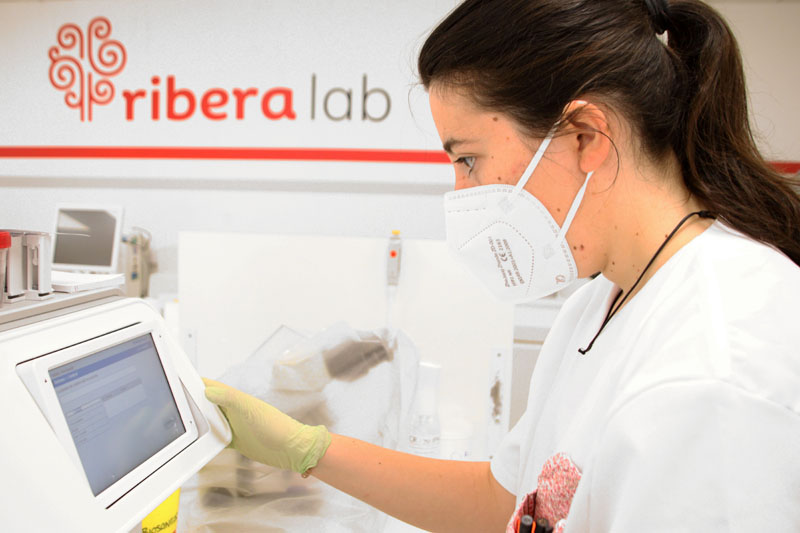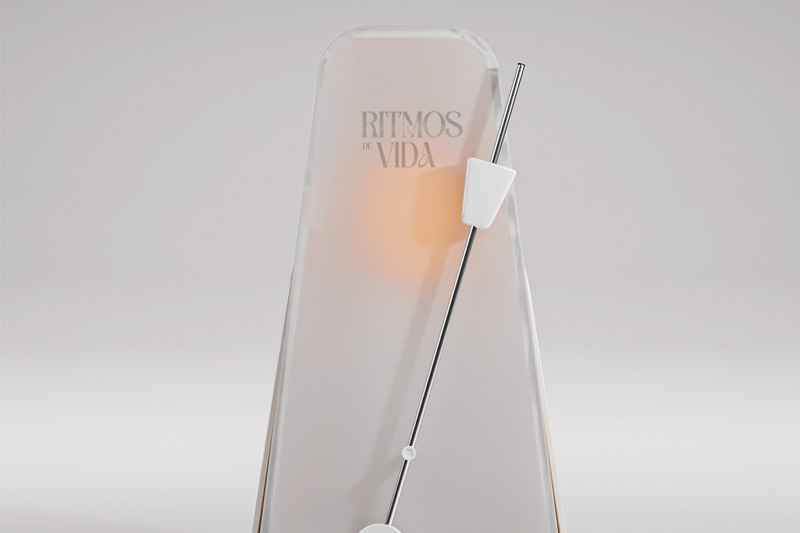
by S0p0rt3 | Feb 22, 2023 | Ribera |
- This digital programme, co-created by Ribera Group healthcare professionals and the startup Nootric, offers personalised nutritional plans and guides and allows patients’ state of health to be monitored in real time, in order to anticipate any worsening of their condition.
- The project has been very well received by patients at the Hospital del Vinalopó and Nefrosol, with an average age of 70, because it helps them to improve their nutritional habits and, in the case of dialysis, to care for and reduce their body weight.
The digital nutrition service provided by the Ribera healthcare group to dialysis and oncohaematology patients at the Vinalopó University Hospital and its Nefrosol dialysis centre has been well received in its first phase. Patients have found the application developed by the startup Nootric, sponsored by the healthcare group in the Lanzadera Corporate programme, and the personalised nutritional plans and guides, developed together with Ribera professionals, to be practical, attractive and useful, depending on the needs of each patient and their pathology.
Thanks to this programme, each patient’s nutritional habits can be monitored in real time, without the need to go to the doctor’s office, as in addition to permanent interaction, the application has an alert system that facilitates proactive intervention by the medical team, if necessary, and anticipation of possible worsening of the process.
80% of the participants have made active and continuous use of the app, and both professionals and patients give it a very high score, highlighting that this service has helped them to improve their quality of life and health. In fact, in the first three months, more than 100,000 interactions with the app have been recorded and patients have uploaded nearly 1,200 food photos.
In the case of dialysis patients, they highlight how this initiative has allowed them to control and reduce their body weight, reducing the complications of obesity-related kidney pathologies in some cases, and improving transplant options in others. Oncology patients highlight not only this improvement in quality of life, but also in the dietary knowledge and physical activity they need to feel well.
The good results obtained in this first phase are even more remarkable when we know the average age of the participants, which is 70 years old, which shows that, in the case of this application, technology has not been a barrier, as it provides them with real value in their health care.
The objectives of this digital nutrition service have been met. It has succeeded in educating patients in nutrition, making them feel that they are permanently accompanied; it has speeded up their recovery and reduced the side effects of treatments in oncohaematological patients; and it has helped in weight loss in dialysis patients and accelerated the possibility of transplant in potential patients.
In addition, it has been shown that nutritional plans and patient monitoring and control have not only improved the quality of life of patients but also of their caregivers, as it is often the caregivers who bear the responsibility for dietary decisions in each case.
Nootric is one of the startups in the health sector that the Ribera healthcare group has sponsored over the last three years, in the context of the Lanzadera Corporate programme, in its commitment to open innovation for the development of digital solutions that help to improve the health of its patients.

by S0p0rt3 | Feb 21, 2023 | Ribera |
- Alberto de Rosa, president of the health group, attends the ceremony to mark the completion of the works together with the CEO of Dhaman Hospitals Company, Thamer Arab, the Spanish ambassador to Kuwait and several senior members of the Kuwaiti government.
- Spanish ambassador Miguel Aguilar highlights the Ribera Group’s contribution to the project: “it has the will and capacity to strengthen cooperation in the field of health, and is working with the Kuwaiti side to explore new opportunities and inject new impetus into cooperation between the two countries”.
Dhaman and Ribera inaugurate the second public-private partnership hospital in Kuwait, which completes the network initially planned to provide healthcare to more than two million citizens in this country.
The president of the Ribera health group, Alberto de Rosa, attended this week the inauguration and completion of the works of this new health centre in the region of Jahra which, in its 82,000 square metres, has 330 beds, 14 operating theatres, 21 intensive care units for adults and newborns, 75 consultations for the main specialities, a central pharmacy that operates with an automated system, Radiology, laboratory and an emergency unit with heliport. It will begin to see patients in the second quarter of the year.
Alberto de Rosa was very proud of the work carried out by the Ribera team in Kuwait and also highlighted the importance of this project, which consolidates Ribera’s presence in the Middle East and boosts its strategic consultancy area to implement its responsible health model. “We have more than 25 years of experience in the integrated management of hospitals and primary care centres, with a technological base and a capitative financing model, in which Ribera is a pioneer,” explained De Rosa. And in this way, he adds, “we help the different administrations in the sustainability of health systems, thanks to public-private collaboration”. In fact, Ribera’s experience and leadership in this field was one of the aspects highlighted at the inauguration of the Jahra hospital by the CEO of Dhaman Hospitals Company, promoter of the project and Ribera’s partner in Kuwait, as well as by the various representatives of the Kuwaiti government who attended the event and the Spanish ambassador to Kuwait, Miguel Aguilar. The CEO of Dhaman, Thamer Arab, assured that “in cooperation with a world expert in the management of a health system of this size, the Spanish corporation Ribera”, their intention is to develop “a new and advanced model in health care” with many advantages, among which he highlighted that “it will reduce the pressure on the Kuwaiti Ministry of Health and this will be reflected in the quality of health services offered to Kuwaiti citizens”.
Kuwait Investment Authority (KIA) official Khaled Al-Hassoun congratulated Dhaman and its partner Ribera for completing construction work on the hospital, which he described as “one of the projects in the state’s development plan”. “This project is vital as it will contribute to achieving a quantum leap in the healthcare sector,” he assured, while announcing that “we are counting on them to contribute to alleviating the financial burdens, related to healthcare in the state budget, especially in overcoming the challenges currently facing the sector.”
In a similar vein, Faleh Al-Dosari of Kuwait’s Supreme Council for Planning and Development stressed that Dhaman is one of the strategic projects in the state’s development plan and Kuwait Vision 2035. “An effective and sustainable health system is the cornerstone of progress in all fields. It is managed through the mechanism, planning and implementation of the private sector, in partnership with the government sector, which supports the achievement of goals in line with health trends in the world,” he said.
For his part, the Spanish ambassador to Kuwait, Miguel Aguilar, expressed his admiration for the health model in this country and his government’s desire to “make a qualitative leap in the health sector in the State of Kuwait, with this model that is being applied for the first time in collaboration with the Spanish international operator Ribera”. He added: “The Spanish side has the will and the capacity to strengthen cooperation in the field of health, and is working with the Kuwaiti side to explore new opportunities and give new impetus to cooperation between the two countries.

by S0p0rt3 | Feb 7, 2023 | Ribera |
- The central laboratory of the Ribera Group’s analysis division acquires new technology for integral biological diagnosis, which will allow it to carry out more than 1,000 determinations a day as of this January.
- The number of professionals has increased by 25% in the last year in order to respond efficiently and quickly to the needs of the Vinalopó Hospital and the health centres.
Ribera Lab, the laboratory division of the Ribera healthcare group, has taken over from this January all the analytical tests of the Vinalopó Health Department, i.e. all those carried out on patients at the Vinalopó University Hospital and all the Primary Care centres in the area. The analysis and management of all the blood, urine and biological fluid analyses of Vinalopó has meant tripling the activity of the central laboratory of Ribera, located in Torrellano (Elche).
Shortly before taking on this volume of work, Ribera Lab completed the installation of new technology, which now allows it to carry out more than 1,000 determinations a day, with the capacity to increase it as required. Of particular note is the new automation system known as ATELICA, with the capacity to analyse 800 tubes per hour.
Ribera Lab, which is already integrated in most of the hospitals of the healthcare group, has prepared to take over the management of the laboratory in the Vinalopó area. In addition to the new machines that have been installed during the last quarter of 2022, the laboratory division has increased the number of professionals at its Torrellano centre by 25%, in order to “respond efficiently and quickly to the needs of patients throughout the health department,” says its director, Mayte Alarcón.
The laboratory division of the Ribera Healthcare Group has a constitutional, prenatal and onco-haematological cytogenetics laboratory, a molecular biopathology laboratory for hereditary diseases, infections and onco-haematological diseases, in addition to the central clinical laboratory.

by S0p0rt3 | Feb 7, 2023 | Ribera |
- “Ritmos de Vida” is endorsed by the professionals of the group’s Heart Department and features musicians, some of whom are healthcare professionals, who have recorded compositions to the “rhythm” of this unique metronome, made by Ribera from the heartbeat of Adrián, a patient with cardiovascular disease.
- The initiative was presented today at the University Hospital of Torrejón with two round tables to talk to specialists about heart care at all stages of life and the health benefits of music.
The Ribera healthcare group today presented the “Rhythms of Life” campaign, in which health and music go hand in hand to raise awareness of cardiovascular diseases and associated risk factors, with a singular and unique element: the first ever arrhythmic metronome.
Ribera has promoted the construction of a very special metronome, which swings to the “rhythm” of a sick heart, specifically the heart of Adrián, a patient with arrhythmia, and which is the focus of all the initiatives linked to this health awareness and education action: a travelling exhibition of the unique metronome, which will tour all the group’s hospitals; musical compositions recorded to the rhythm of the heart, awareness days with patients and healthy advice on how to look after the heart, among others.
Ribera has worked on this initiative with Maart Agency, responsible for the creative idea, and with Estudio Espadaysantacruz, manufacturer of the personalised arrhythmic metronome. The core of the campaign is that both the heartbeat and the “tempo” of compositions in music are measured in the same way, in beats per minute (BPM). That is why this “special” metronome has been produced: it is the means by which musicians measure the tempo.
This afternoon, the University Hospital of Torrejón hosted the launch of “Rhythms of Life”, endorsed by the professionals of the Heart Area of the healthcare group, and also by prestigious national and international cardiologists, who took part in the event, which was also attended by representatives of institutions, patient associations and professionals. The presentation began with two round tables to discuss heart care at all stages of life and the health benefits of music, with the participation of several health professionals who are also musicians. The first round table was moderated by the president of New Medical Economics, Dr. José María Martínez, with the participation of Dr. Alfonso Valle, head of the Cardiology Service of the Hospital de Denia; Carlos de Diego, head of the Cardiology Service of the Hospital Universitario del Vinalopó; and Óscar Salvador, cardiologist of the Hospital Universitario de Torrejón. The second round table, moderated by Dr. Vicente Roig, coordinator of the Heart Area of the Ribera Group, began with a talk by Dr. David Alter, senior scientist at the Institute for Clinical Evaluative Science (ICES) in Toronto, Canada, with the participation of Dr. Javier Viñas, cardiologist at the Hospital de Cuenca, and Dr. José Mallent, surgeon specialising in Plastic, Cosmetic and Reconstructive Surgery. All of them are also musicians.
Afterwards, the hall of Torrejón Hospital became a stage for a live musical performance by the vocalist of The Heart Swinger, Dr. Javier Viñas, together with Manuel Murgui, pianist; and Esperanza Fernández de Mesa, Councillor for Health of Torrejón de Ardoz City Council, inaugurated the first of the travelling exhibitions of the metronome in this health centre, accompanied by Alberto de Rosa and Elisa Tarazona, President and CEO of Ribera. The exhibition will tour the rest of the group’s hospitals in the coming months.
A campaign beyond Ribera
The aim of “Ritmos de Vida” is to raise awareness of cardiovascular problems in order to help prevent them. For this reason, the initiatives included in the campaign are open to all health centres, beyond Ribera’s own: the exhibition of the unique metronome will be able to travel to different places, and the web and social networks will share the compositions created by musicians from different backgrounds, to the rhythm of Adrián’s heart.
Cardiovascular diseases are currently the leading cause of death in the world. More than 17 million people die each year from heart disease and it is estimated that by 2030 there will be 23 million. Specifically in Spain, 250 people die every day from heart disease. That is why those in charge of the Heart Area of the Ribera group, the cardiovascular network of inter-hospital collaboration made up of professionals from the Vinalopó and Torrejón university hospitals, the Denia hospital and the Ribera Povisa hospital, consider actions related to prevention, education and health care to be of particular importance in order to tackle the risk factors of cardiovascular diseases and detect any anomaly in this organ-system in time. Video “Rhythms of Life”, here.





Recent Comments